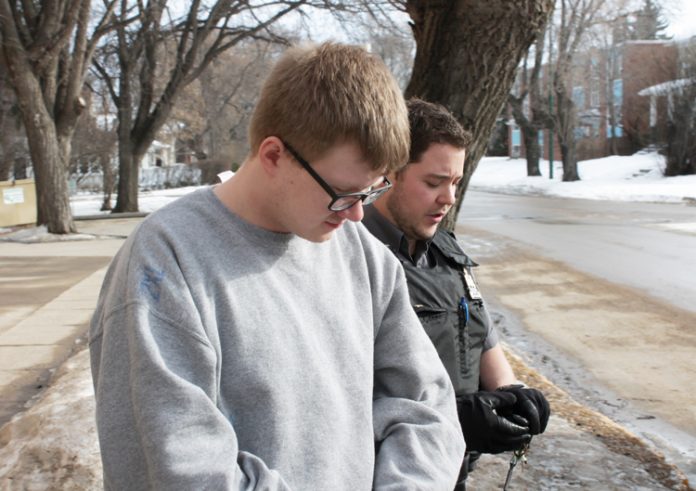The two men convicted of murdering a Prince Albert teen want another day in court
After a February trial, Jordan Herron and Orren Johnson were found guilty of killing Clayton Bear in an East Hill home back in 2014. The 17-year-old died of a gunshot wound through his liver. The trial hinged on the credibility of eyewitness accounts, with the defence arguing that everyone in the home was too intoxicated to remember what happened.
Ultimately, Herron was convicted of second-degree murder, Johnson of first-degree murder. Justice J.D. Kalmakoff sentenced both to life. Johnson cannot seek parole for 25 years, while Herron has 11 years of ineligibility.
Now, they’ve both filed appeals. Herron’s trial lawyer, Mary McAuley, is still representing him. In March, she filed papers with the Court of Appeal, challenging Herron’s conviction and sentence.
In her filing, she outlined her concerns at length.
First, she argues, Justice Kalmakoff did not provide proper instructions to the jury. She claims that he did not properly instruct them that they could draw an adverse inference from the Crown’s failure to call key witnesses.
Second, she holds that Kalmakoff had “no evidentiary basis” for putting first-degree murder before the jury as a possible charge. She also took issue with the charge of second-degree murder, saying that no reasonable jury properly instructed could have found a basis to convict.
She then raised an issue that almost derailed the trial in February. In closing arguments, Johnson’s lawyer compared her client to David Milgaard, perhaps Canada’s most famous case of wrongful imprisonment. McAuley said that was “highly prejudicial” to Herron, and called for a mistrial. Kalmakoff refused, and instead offered a corrective instruction to the jury.
For McAuley, that wasn’t sufficient. She claims that Kalmakoff “erred” when he sent the case to the jury.
Last of all, she challenges Herron’s sentence. She argues that Kalmakoff should have imposed the minimum period of parole ineligibility: 10 years.
Orren Johnson filed his appeal in April. He has a new lawyer, Edmonton-based Harold Brubaker. Brubaker included extremely broad grounds for appeal in his filing: a question of law, a question of fact or “such further grounds as counsel may advise.”
He told the Daily Herald that he is still awaiting transcripts from the original trial, and is trying to keep his options open.
Staff at the Court of Appeal said they are also awaiting information from trial, and have not yet set a date to hear the appeal.


